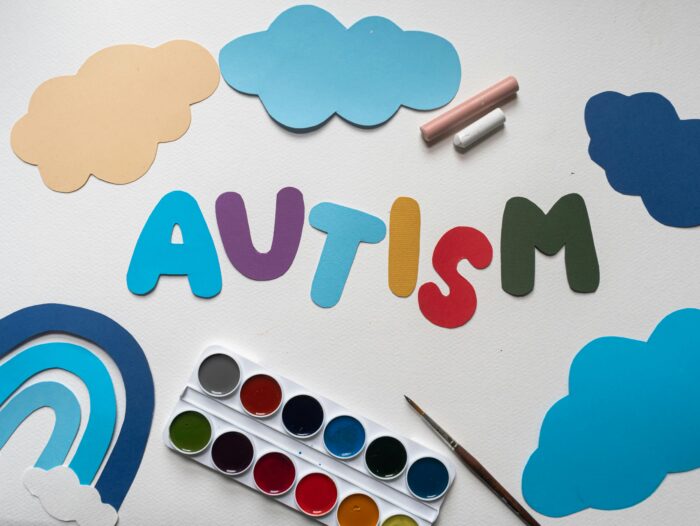
Parenting a child with Autism Spectrum Disorder (ASD) often means navigating a vast sea of information, seeking both clarity and hope. Autism, with its unique challenges in social interaction, communication, and repetitive behaviors, affects every individual and their family differently. During this journey, the critical question arises — can autism be cured?
This article will explore the complexity of autism, highlighting the spectrum’s nature, and answer your question. We’ll aim to provide insights and support, exploring effective treatments and therapies to empower families with knowledge and understanding.
The Concept of a Cure for Autism
Even though there is no cure for autism, there are ways to reduce the challenges associated with the condition, aiming for the highest quality of life possible.
Navigating autism isn’t about the pursuit of an autism reversal or finding a cure for it — it’s about adapting to it and maximizing life with the condition. The goal is to create an environment where individuals with autism can flourish.
These treatments are designed to assist with communication, social skills, and repetitive behaviors. It’s about seeing your child grow, thrive, and be happy, which brings joy and a sense of achievement to everyone involved.
The Importance of Early Intervention
Beginning the treatment as early as possible (usually around 2 years old) is key due to the brain’s incredible plasticity during early childhood, allowing for more significant changes. This approach can profoundly influence a child’s cognitive, social, and language skills, helping them acquire essential abilities more quickly and effectively.
Research consistently shows that children who receive such therapies can, in some cases, mainstream into regular educational settings. To this end, autism statistics for 2024 report that 73.6% of students with autism graduate with a high school diploma.
The goal of early intervention is not only to accelerate development but also to equip your child with the tools they need to navigate the world more independently as they grow.
ASD Treatments and Therapies
When exploring the wide range of treatments and therapies for your child, it’s vital to remember that every case of autism is unique. Finding the right combination of treatments can make all the difference in their development and daily life.
Here, we’ll guide you through some of the best ways in which autism can be treated.
Behavioral Therapies
Behavioral therapies focus on improving specific behaviors, such as communication and social skills, through reinforcement strategies. Applied Behavior Analysis (ABA) is a well-known example of a behavioral therapy designed to encourage positive behaviors and reduce those that may be harmful. It focuses on small, measurable goals, making significant changes over time through positive reinforcement.
Developmental Therapies
These therapies are centered on the developmental milestones of children. According to scientific studies, Programs like the Developmental, Individual-differences, Relationship-based (DIR) model, also known as Floortime, encourage developmental progress through play and relationship-building activities that promote emotional and social growth.
Educational Therapies
Specialized educational programs are tailored to autistic children’s learning needs, emphasizing social communication and interaction. Structured teaching environments, such as the Treatment and Education of Autistic and Related Communication Handicapped Children (TEACCH) program, use visual cues and organizational strategies to support learning.
Social-Relational Therapies
This approach is often led by parents or peer mentors. It is focused on helping autistic children develop their social skills and form close relationships more easily.
Programs like the Social Communication, Emotional Regulation, and Transactional Support (SCERTS) model help children better navigate social interactions and manage emotions.
Pharmacological Treatments
While there isn’t any autism medication that addresses its core symptoms, there are certain medications that can alleviate co-occurring symptoms, enhancing daily functioning for individuals with ASD. At the time of writing, only Risperidone (Risperdal) and Aripiprazole (Abilify) are FDA-approved for children with ASD, and only for the 5 and 6-years-olds.
Some of the issues these medications can help with include irritability, aggression, hyperactivity, lack of focus, and repetitive behaviors. However, research shows that they are most effective when combined with other behavioral treatments.
Psychological Therapies
For older children and adults, therapies like cognitive behavioral therapy (CBT) can be adapted to help manage anxiety and depression. These therapies focus on developing coping strategies and improving emotional regulation, tailored to the unique challenges faced by children with autism.
Complementary and Alternative Therapies
Some families explore options like dietary changes, music therapy, or animal-assisted therapy. While the evidence for these therapies varies, they can offer additional support alongside more conventional treatments. Still, it’s important to approach these with caution and consult an ABA healthcare team.
Choosing the best treatment for autism involves a personalized approach, figuring out what works best for your child’s needs and strengths. Collaborating with a team of professionals at Abacus Therapies, you can develop a supportive and effective treatment plan.
Helping Autistic Children and Their Loved Ones Thrive
Taking care of a child with autism goes beyond just navigating challenges. It’s about understanding their unique perspective and providing the right support to help them succeed.
For families, this involves creating a nurturing environment that balances love, patience, and encouragement through each step of progress. It’s about recognizing every achievement, big or small, and working together towards a fulfilling life for everyone involved. Some things that can help you and your child thrive include:
Finding your tribe — Tapping into local support groups can be of great help. This is where you can exchange stories and suggestions, as well as find a community that understands you. These groups offer various resources and support to help you navigate life with ASD.
Standing up for your child — It’s about equipping yourselves with knowledge and fighting for your child’s rights to an education that’s tailored to their unique needs. Making sure they’re given educational options that cater specifically to them is crucial for unlocking their full potential.
Getting financial help — Understanding and accessing financial ASD aid can ease the pressure, with various ASD programs and grants available to help cover therapy costs and educational needs. You need to know what’s out there and how to access it.
Caring for the caregivers — Taking care of someone with autism is profoundly rewarding but also demanding. Caregivers, take time for yourselves too. Your well-being is just as important, ensuring you can be there for your loved one.
Conclusion
Although many wish curing autism was possible, it isn’t — but this doesn’t mean nothing can be done. This path, filled with challenges, also brings opportunities for growth and deeper connections. When talking about autism, healing should be more focused on creating a supportive and accepting environment than on finding a cure.
For families navigating this journey, know that your love, understanding, and advocacy can create a world in which your child can thrive. And, remember — you’re not alone. Together, we’ll continue to adjust to the unique perspectives that autism brings into our lives and make the best of the strengths that come with it.
FAQs
Can an autistic person live a fulfilled life?
Absolutely. Many autistic individuals lead fulfilling lives, engaging in work, relationships, and hobbies just like anyone else. Success and happiness look different for everyone, including those on the autism spectrum.
Can an autistic child become “normal”?
The concept of “normal” is broad and subjective. While autistic children may reach milestones at their own pace, with early intervention and tailored support, they can have as happy of a childhood as any other child. Emphasizing strengths and fostering a supportive environment are key to helping them thrive.
Can an autistic child speak like other kids?
Speech development varies widely among autistic children. Some may develop speech at a typical pace, but they may need support in other areas of communication, such as fluency or figurative language. Others might communicate non-verbally or require speech therapy to enhance communication skills. With the right support, many can learn to communicate effectively.
Can a child with autism outgrow it?
Autism is a lifelong condition, but symptoms can evolve, and with appropriate interventions, individuals can learn to navigate or lessen some of the challenges that come with autism. While the path to independence varies widely and depends on the severity of symptoms, there are different levels of support available that can make independent living a possibility.



